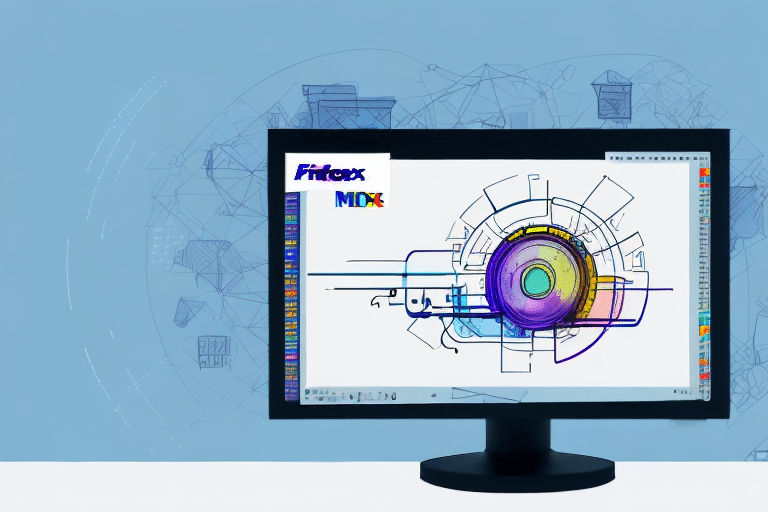Reducing Excessive Printing in FedEx Ship Manager for a Sustainable Future
FedEx Ship Manager is a powerful tool that simplifies shipping for businesses of all sizes. However, many users encounter the issue of excessive report printing, which not only consumes valuable resources like paper and ink but also increases time and costs associated with the shipping process. This article explores the environmental impact of excessive printing in FedEx Ship Manager, the benefits of reducing printing, how to customize your printing settings, and provides a step-by-step guide to stopping report printing altogether.
The Environmental Impact of Excessive Printing in FedEx Ship Manager
Printing reports in FedEx Ship Manager significantly affects the environment. According to the Environmental Protection Agency, the average American uses 10,000 sheets of paper annually, contributing to millions of tons of paper waste each year. Reducing printing within FedEx Ship Manager can help mitigate your environmental footprint and support a more sustainable future.
Beyond environmental concerns, excessive printing also incurs financial costs. Businesses heavily reliant on shipping and logistics can see substantial expenses from paper and ink usage. By adopting digital alternatives such as email notifications and electronic invoices, you can not only lessen your environmental impact but also reduce operational costs.
Benefits of Reducing Printing in FedEx Ship Manager
Cost and Time Savings
Minimizing printing in FedEx Ship Manager leads to significant savings in both time and money. Eliminating unnecessary printing steps streamlines the shipping process, allowing businesses to allocate resources more efficiently.
Environmental Protection
Reducing paper usage directly contributes to environmental conservation by lowering the demand for paper production, which in turn reduces deforestation and carbon emissions.
Enhanced Security
Fewer printed documents mean reduced chances of sensitive shipping information falling into the wrong hands. Digital records offer better control over access and enhance data security.
Improved Workflow Efficiency
Streamlining your shipping process by reducing the need to print shipping labels and documents can accelerate package preparation, especially for businesses handling high volumes of shipments.
Customizing Printing Settings in FedEx Ship Manager
Understanding Available Printing Options
FedEx Ship Manager provides various printing settings, including default print options for shipping labels, customs forms, commercial invoices, and shipment reports. By configuring these settings appropriately, you can significantly reduce unnecessary printing.
Managing Packing Slips
Packing slips detail the contents of each package and are essential for both the shipper and the recipient. FedEx Ship Manager allows you to print packing slips selectively, ensuring that only necessary documents are printed, thereby reducing paper usage.
Step-by-Step Guide to Stopping Report Printing in FedEx Ship Manager
- Navigate to "Ship History" in the main menu.
- Access the "Preferences" tab.
- Uncheck the box labeled "Print each shipment after it is processed."
- Click "Save" to apply your changes.
By disabling report printing, businesses can save time and resources, streamline their shipping processes, and minimize paper waste.
Customizing Your Shipping Reports
Even if you opt to stop printing reports, accessing shipping data remains crucial. FedEx Ship Manager allows customization of shipping reports, enabling you to receive specific information via email. This approach ensures you have the necessary data without the need for physical reports.
Selecting Relevant Data Fields
You can choose which data fields to include in your reports, such as shipment dates, tracking numbers, recipient information, and delivery statuses. Additionally, you can set the frequency of these reports—daily, weekly, or monthly—based on your business needs.
Data Analysis and Decision Making
Customized reports facilitate better analysis of shipping data, helping identify trends and optimize shipping processes for greater efficiency.
Saving Time and Money by Reducing Printing
Reducing printing in FedEx Ship Manager leads to significant time and cost savings. Less time is spent managing physical documents, and costs associated with paper and ink are decreased.
Adopting Electronic Solutions
Utilizing electronic shipping labels and invoices not only conserves paper and ink but also speeds up the processing and tracking of shipments. Setting default printing preferences ensures that only essential documents are printed.
Environmental Impact Reduction
Lowering paper and ink usage contributes to a smaller environmental footprint, supporting sustainability initiatives and corporate social responsibility goals.
Troubleshooting Common Issues When Stopping Report Printing
Label Printing Problems
If you encounter issues with printing labels after disabling report printing, contact FedEx Customer Service for assistance. Troubleshooting may also involve adjusting custom label formatting or addressing shipping data discrepancies.
System Performance Issues
System freezes or crashes after disabling printing settings can be frustrating. Restarting the system or reinstalling the software may resolve these issues. Persistent problems should be reported to FedEx support.
Data Completeness Concerns
Disabling report printing might lead to incomplete or missing data if the system is interrupted before processing all information. Ensure all shipments are fully processed before making changes to printing settings. For missing data, access the shipment history within the software or seek assistance from FedEx support.
The Role of Technology in Reducing Paper Waste
Advancements in technology are pivotal in minimizing paper waste within FedEx Ship Manager. Digital solutions like electronic shipping labels and customs forms eliminate the need for physical printing. As technology evolves, additional opportunities to reduce paper waste will continue to emerge.
FedEx's Paperless Initiatives
FedEx is promoting paperless billing and invoicing, which not only reduces paper waste but also streamlines the billing process for both the company and its customers. Embracing these digital solutions supports sustainable practices and reduces environmental impact.
Best Practices for Sustainable Shipping with Minimal Printing
Leverage Digital Solutions
Utilize electronic shipping labels, customs forms, and invoices to minimize the need for printed documents.
Customize Reporting
Tailor your shipping reports to include only the necessary information and set appropriate reporting frequencies to avoid unnecessary data accumulation.
Proper Disposal of Paper Waste
Ensure that any paper waste generated is recycled or disposed of responsibly to maintain environmental sustainability.
Utilize Save Shipment Features
Use the "Save Shipment" feature to store shipment information and print labels later, reducing the likelihood of printing unnecessary labels and further decreasing paper waste.
In conclusion, reducing printing in FedEx Ship Manager is beneficial for both your business and the environment. By understanding and adjusting your printing settings, adopting digital solutions, and following best practices, you can significantly lower your environmental impact while saving time and money.




















